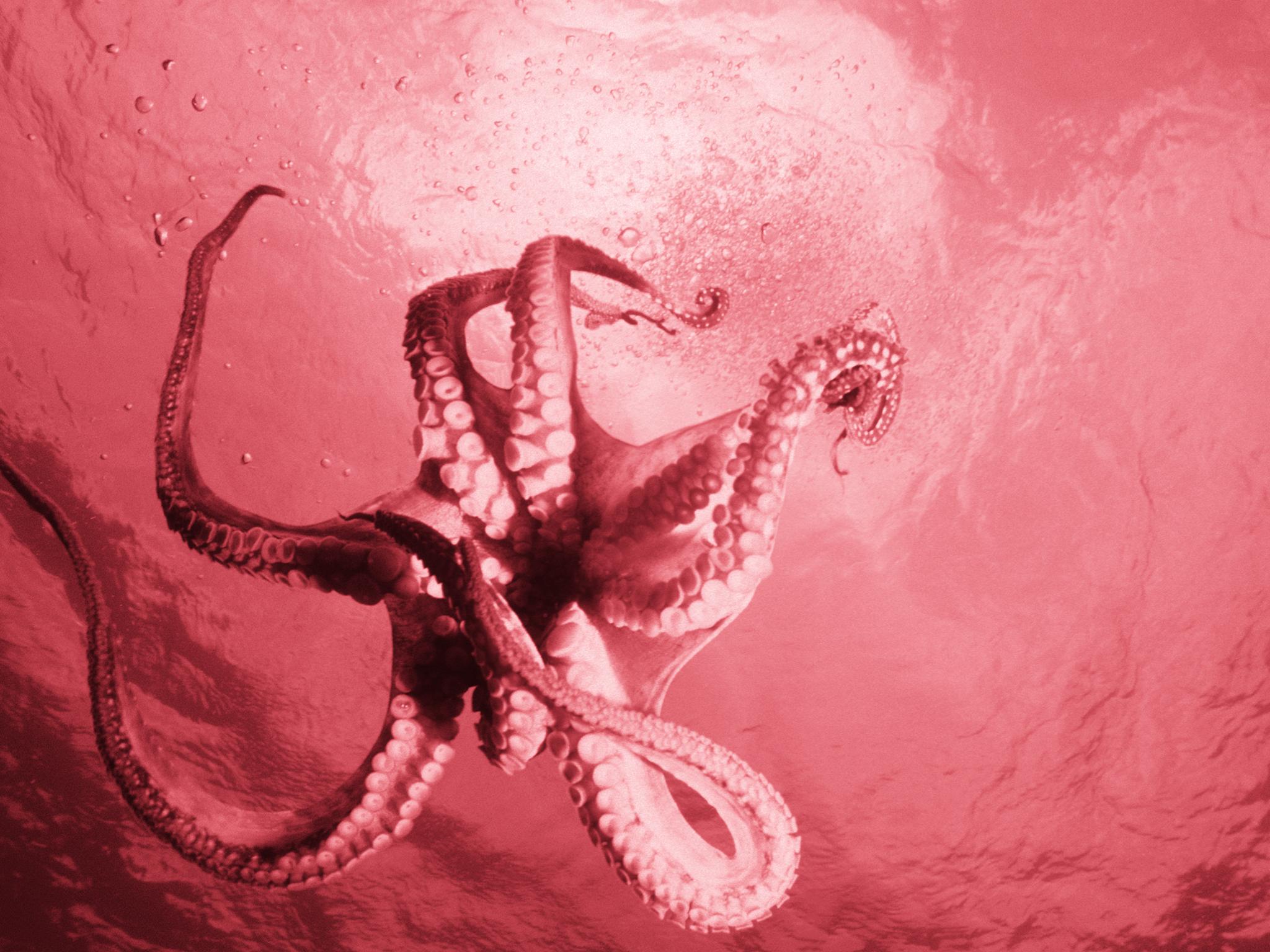Are octopuses aliens from outer space that were brought to Earth by meteors?

Your support helps us to tell the story
From reproductive rights to climate change to Big Tech, The Independent is on the ground when the story is developing. Whether it's investigating the financials of Elon Musk's pro-Trump PAC or producing our latest documentary, 'The A Word', which shines a light on the American women fighting for reproductive rights, we know how important it is to parse out the facts from the messaging.
At such a critical moment in US history, we need reporters on the ground. Your donation allows us to keep sending journalists to speak to both sides of the story.
The Independent is trusted by Americans across the entire political spectrum. And unlike many other quality news outlets, we choose not to lock Americans out of our reporting and analysis with paywalls. We believe quality journalism should be available to everyone, paid for by those who can afford it.
Your support makes all the difference.Octopuses are aliens. That’s the claim being made by a team of 33 researchers published in a peer-reviewed scientific journal.
They are not referring to aliens in a metaphorical sense, but literal aliens from outer space.
Since the paper was released on Sunday, a trickle of news coverage has turned into a torrent, with increasingly alarming headlines about octopuses and their extra-terrestrial origins.
It will not come as a surprise to many to learn that these claims have been roundly mocked by the scientific community, who have branded the paper – published in Progress in Biophysics and Molecular Biology – as ridiculous and unscientific.
What are the claims being made?
They suggest the Cambrian explosion, a sudden burst of life that occurred around 540 million years ago, was the result of extra-terrestrial intervention.
The paper asks whether this event, which saw the rapid emergence of most of the main animal groups that still exist on Earth today, was “terrestrial or cosmic”. Their conclusion is the latter.
How do the scientists suggest this would work?
Specifically, the researchers propose the idea that alien viruses crashed to Earth in a meteor, infected a population of primitive squid and caused them to evolve into octopuses.
Another theory they suggest is that fertilised squid or octopus eggs were delivered to Earth by a meteor.
The idea is essentially a reimagining of the “panspermia” hypothesis, which suggests that life on Earth was “seeded” by space dust or asteroids crashing into Earth. One of its first proponents, Chandra Wickramasinghe, is one of the authors of the new paper.
Why do the researchers look at the octopus in particular?
Octopuses are weird. They are molluscs, meaning they are closely related to snails, and yet they are incredibly intelligent.
On top of their large brains and sophisticated nervous systems, the authors of the new paper list camera-like eyes, flexible bodies and ability to camouflage themselves by changing colour and shape as evidence of their extra-terrestrial origins.
So suddenly did these features appear in the octopus family tree that “it is plausible then to suggest they seem to be borrowed from a far distant ‘future’ in terms of terrestrial evolution, or more realistically from the cosmos at large,” the authors write.
“Such an extraterrestrial origin as an explanation of emergence of course runs counter to the prevailing dominant paradigm,” they continue. This is a strong contender for understatement of the century.
What reason is there to doubt the claims being made in the paper?
There are plenty of reasons. First off, as Mark Carnall from the Oxford University Museum of Natural History pointed out in a series of tweets, not one of the paper’s authors is a zoologist.
Much of the authors’ speculation rests on the idea that the genetics of octopuses and their relatives are mysterious – yet a 2015 paper published in Nature revealed the octopus genome, so this is rather disingenuous.
In fact, octopus genes suggest they fit into the generally understood theory of the evolution of life on Earth, and require no alien invasion. They are thought to have split from the squid lineage around 135 million years ago.
Molecular geneticist Professor Karin Moelling of the Max Planck Institute Molecular Genetics, who was asked to review the report, concluded that it "cannot be taken seriously”.
The primary reason for doubt given by Professor Moelling is that there is “no evidence at all”.
Haven’t I heard something about octopuses being aliens before?
Writers are fond of comparing octopuses to aliens due to their unusual appearance and great intelligence. Philosopher Peter Godfrey-Smith, who has written a book about octopus intelligence titled Other Minds, has described them as “the closest we will come to meeting an intelligent alien”.
On top of that, this is not the first time octopuses have been mistakenly labelled aliens by the press.
An unfortunately worded press release concerning the Nature paper describing the octopus genome led to a slew of online news pieces in 2015 about researchers finding “alien DNA” in these creatures.
Join our commenting forum
Join thought-provoking conversations, follow other Independent readers and see their replies
Comments